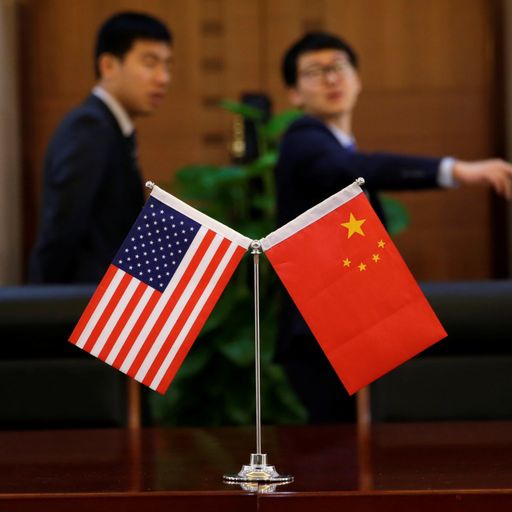Is this the new normal for China - US relations?
China has chosen domestic economy over the demands of globalisation all along - now the USA is doing it too.
Monday 24 September 2018 09:51, UK
Unlike the US, the Chinese government is scrupulous in avoiding calling the current exchange of import tariffs with the US a "trade war".
They might be right: this is not a war, but a new and different relationship between the two biggest economies in the world. And a step back from globalisation.
On Monday, both sides imposed their latest sets of tariffs. As a bonus, China released a 36,000 word paper about its trade relationship with the US.
Some of this contained the usual rhetoric from Beijing: that it was seeking a "rational" response and "reasonable" solutions, once again warning of the "grave threat to the multilateral trading system and the principle of free trade".
The US was the one using "trade bullyism practices" - engaging in "unilateralism, protectionism and economic hegemony".
All of this is true - and that is why we're stuck. The US, tired of trying to get China to act like the US, has decided instead to act like China.
China refuses to address any of the substantive accusations made against it by the US - that it enforces technology transfers from US companies; uses hackers to steal intellectual property; that it keeps out western competitors from its huge internal market (try logging on to Facebook here in Beijing or paying with Mastercard), or that its state-backed companies benefit from huge subsidies and opaque contract awards.
China has been the one peddling protectionism.
Whatever experts think of tariffs and the trade war - and the majority seems to view them as a bad idea - they tend to agree with this diagnosis.
The problem is that China hasn't changed its behaviour, despite repeated criticism that long predates Donald Trump.
Tariffs were supposed to be a way of forcing the issue. In fact, they have probably made it worse.
Many in China had argued that the Chinese market did need further reform - to open up more if it wanted to get to the next stage of development.
That's unlikely to happen when the US is very publicly holding a gun to the Chinese leadership's head. It cannot be seen to back down.
So for now the tariffs will remain and these two economic superpowers will have less to do with each other.
It is not the end of globalisation but it is a retreat from what the economist Dani Rodrik calls "the push into hyperglobalisation" heralded by the creation of the World Trade Organisation in 1995.
Under Mr Trump, the US is reprioritising its domestic economy over the demands of globalisation - something China had been doing all along.
If China wants a return to hyperglobalisation, this time it will have to be the country to lead the push.
Until then, welcome to the new normal.






